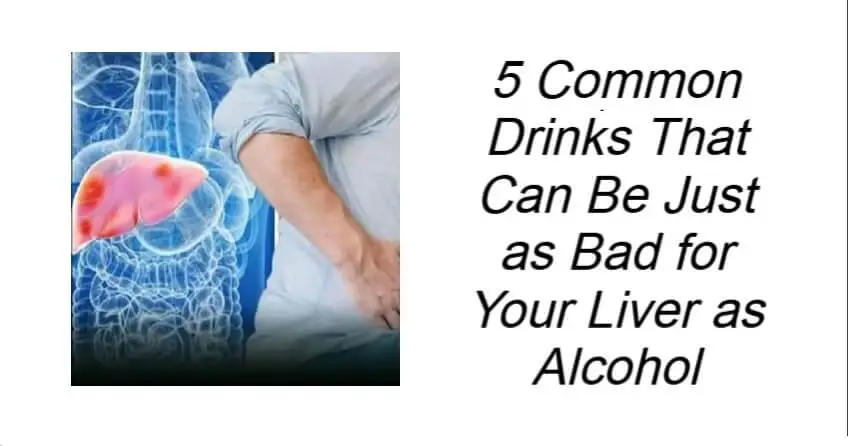5 Common Drinks That Can Be Just as Bad for Your Liver as Alcohol
As a vital organ, the liver plays a key role in digestion, detoxification, nutrient storage, and cholesterol regulation. While most people associate liver damage with alcohol, research shows that several seemingly harmless beverages may be just as harmful—especially when consumed regularly.
In particular, nonalcoholic fatty liver disease (NAFLD) and its more severe form, nonalcoholic steatohepatitis (NASH), are rapidly becoming the most common chronic liver diseases worldwide. Affecting an estimated 20–30% of the global population, NAFLD is closely linked to rising rates of obesity, type 2 diabetes, and other metabolic disorders.
At the heart of NAFLD is liver inflammation and fat accumulation—two conditions heavily influenced by diet. Mounting evidence shows that sugar-laden beverages such as sodas, fruit juices, and energy drinks can overwhelm the liver, particularly due to high fructose content. This contributes to fat buildup, inflammation, and increases the risk of serious complications such as cirrhosis and liver cancer.
Below are five drinks that may damage your liver as much as alcohol:
1. Excessive Fruit Juice
Fruit juice often appears healthy but can be surprisingly harmful in large amounts. Many commercial juices are high in fructose—a sugar the liver metabolizes directly. Unlike whole fruit, juice lacks fiber, which results in rapid blood sugar spikes and a heavy metabolic load on the liver.
Over time, the liver converts excess fructose into fat, increasing the risk of NAFLD. Research suggests that moderate intake (up to two servings per week) is generally safe, but whole fruits are a far better choice for liver health.
2. Sweetened Tea Beverages
Bottled or pre-made iced teas often contain added sugars or high-fructose corn syrup, making them just as problematic as sodas. These sugars can promote liver fat accumulation and inflammation.
To avoid this, consider brewing your own tea at home and sweetening it lightly with natural options like honey or stevia. Honey, in moderation, also offers antioxidant properties and may help regulate blood sugar and cholesterol.
3. Energy Drinks
High in both caffeine and sugar, energy drinks also contain herbal stimulants that may strain liver function. Studies have shown that regular consumption of these drinks can elevate liver enzymes—an early warning sign of liver damage.
The American Academy of Pediatrics recommends that children and teens avoid energy drinks entirely due to their links with obesity, high blood pressure, and fatty liver disease. For adults, occasional use may be tolerable, but frequent intake is strongly discouraged.
4. Sports Drinks
Though marketed for hydration and electrolyte replenishment, many sports drinks are loaded with sugar and fat-soluble vitamins (A, D, E, and K). While these can be beneficial after intense exercise, unnecessary consumption can burden the liver.
Excess nutrients and sugar are metabolized into fat, contributing to NAFLD, especially in sedentary individuals. These drinks should be reserved for genuine physical exertion—not casual hydration.
5. Soda (Both Regular and Diet)
Regular sodas are a well-known cause of liver fat accumulation due to their high sugar content. But even diet sodas aren’t off the hook—artificial sweeteners in these drinks have been linked to metabolic changes, including insulin resistance and fat buildup in the liver.
Whether sweetened with sugar or artificial substitutes, sodas can disrupt liver and metabolic health. Minimizing or eliminating both types can significantly benefit your liver.
Protecting Your Liver Begins with Your Beverage Choices
Your liver works around the clock to detoxify the body, metabolize nutrients, and support overall health. But drinks loaded with added sugars, artificial sweeteners, or stimulants can compromise its ability to function.
The good news? Liver damage from NAFLD is often reversible through lifestyle changes. Prioritize water, herbal teas, and antioxidant-rich whole foods to support liver repair and reduce your risk of long-term damage.
You’ve just read, Common Drinks That Can Be Bad for Your Liver. Why not read Manager Had To Hire A New Employee.

